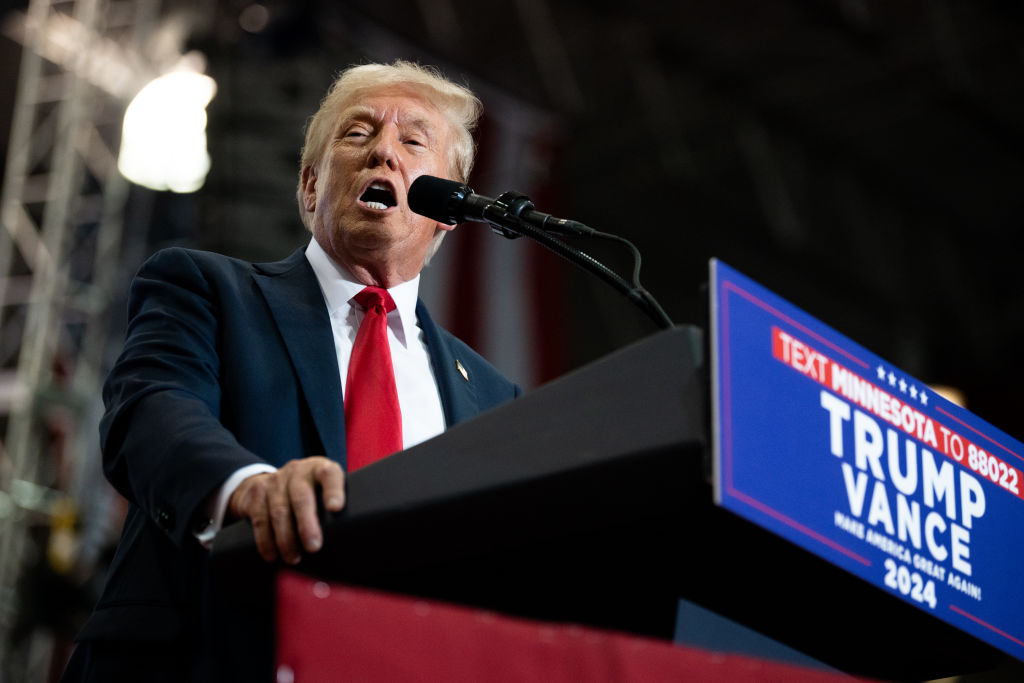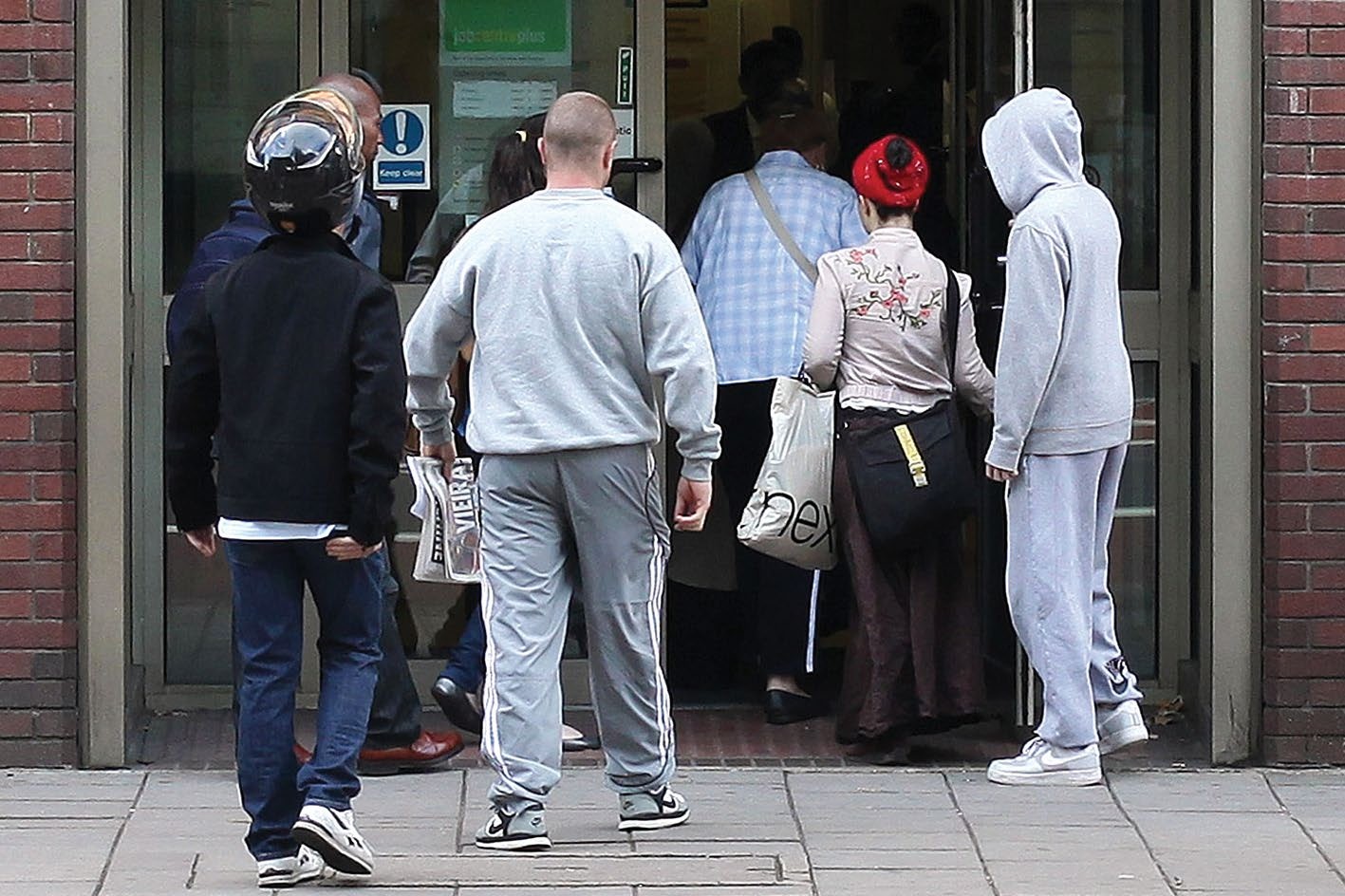What will a Donald Trump presidency mean for investors?
How will Donald Trump impact global stock markets if he becomes president?

Get the latest financial news, insights and expert analysis from our award-winning MoneyWeek team, to help you understand what really matters when it comes to your finances.
You are now subscribed
Your newsletter sign-up was successful
Want to add more newsletters?
“No amount of blood or political rancour” can shake the market’s positive mood, says The Economist. From global wars to an escalating trade conflict with China to an assassination attempt, signs of political instability are multiplying.
Yet stocks are “at, or close to, all-time highs in America, the eurozone and Japan”. The widespread belief on Wall Street is that a second Trump presidency will be good for investors.
True, proposed tax cuts and looser public spending might boost profits, but if Trump abandons Nato or initiates “total decoupling from China”, then stocks will not be spared from the resulting “economic chaos”. With stock valuations already “sky-high”, an unambiguously protectionist president would be “a recipe for a crash”.
Try 6 free issues of MoneyWeek today
Get unparalleled financial insight, analysis and expert opinion you can profit from.

Sign up to Money Morning
Don't miss the latest investment and personal finances news, market analysis, plus money-saving tips with our free twice-daily newsletter
Don't miss the latest investment and personal finances news, market analysis, plus money-saving tips with our free twice-daily newsletter
How are markets reacting to Donald Trump's presidency run?
Investors have been piling into assets expected to benefit from a second Trump presidency ever since Joe Biden's disastrous debate performance last month, say Liz Capo McCormick and Natalia Kniazhevich on Bloomberg. Bitcoin and gold have rallied, while US bond yields have climbed on expectations of higher inflation under a Trump presidency.
But Biden’s withdrawal has thrown “a wild card” into the race, which could spell more volatile trading ahead. Investors should always be careful when betting on politics, says Jon Sindreu in The Wall Street Journal.
With the exception of bitcoin, most of the current “Trump trades” are similar to those that investors tried following Trump’s 2016 victory – sell the Mexican peso and buy “smaller, domestically oriented” stocks in “old economy” industries. That approach didn’t really work last time. “Small-caps performed badly” during Trump’s first term, while “industrials, energy and banks” lagged tech. Indeed, there is a good argument that it is not small US companies, but Big Tech – bruised by the Biden White House’s “antitrust zeal” – that would fare best under Trump.
Investors are also hoping for a repeat of Trump’s 2017 tax cuts, which triggered a corporate earnings bonanza. But scope for further reductions is limited, not least given America’s already yawning budget deficit. As Rabobank analysts put it, investors who are confident they know how a second Trump presidency will play out risk seeing their “Trump trade” turn into a “chump trade”, says Katie Martin in the Financial Times.
The one near-certainty is that “Trump 2.0” would be inflationary because of a “huge increase in trade tariffs” and a “volley” of new unfunded tax cuts. The dynamic US economy might manage to sail on, but assets in allies in Europe and Asia could be in for a rockier ride.
And then there is the “reddest of red lines” – hints that Trump may interfere with the independence of the Federal Reserve, the US central bank. Fed independence has been compromised before, says Ernie Tedeschi in the Financial Times. In the early 1970s, Richard Nixon leaned on the Fed to “keep monetary policy easy during his re-election bid”. That left the door wide open to crushing, prolonged stagflation when the 1973 oil crisis hit the following year. Rising US political risk “is likely being underpriced by markets”.
This article was first published in MoneyWeek's magazine. Enjoy exclusive early access to news, opinion and analysis from our team of financial experts with a MoneyWeek subscription.
Get the latest financial news, insights and expert analysis from our award-winning MoneyWeek team, to help you understand what really matters when it comes to your finances.
Alex is an investment writer who has been contributing to MoneyWeek since 2015. He has been the magazine’s markets editor since 2019.
Alex has a passion for demystifying the often arcane world of finance for a general readership. While financial media tends to focus compulsively on the latest trend, the best opportunities can lie forgotten elsewhere.
He is especially interested in European equities – where his fluent French helps him to cover the continent’s largest bourse – and emerging markets, where his experience living in Beijing, and conversational Chinese, prove useful.
Hailing from Leeds, he studied Philosophy, Politics and Economics at the University of Oxford. He also holds a Master of Public Health from the University of Manchester.
-
 What do rising oil prices mean for you?
What do rising oil prices mean for you?As conflict in the Middle East sparks an increase in the price of oil, will you see petrol and energy bills go up?
-
 Rachel Reeves's Spring Statement – live analysis and commentary
Rachel Reeves's Spring Statement – live analysis and commentaryChancellor Rachel Reeves will deliver her Spring Statement on 3 March. What can we expect in the speech?
-
 Three Indian stocks poised to profit
Three Indian stocks poised to profitIndian stocks are making waves. Here, professional investor Gaurav Narain of the India Capital Growth Fund highlights three of his favourites
-
 UK small-cap stocks ‘are ready to run’
UK small-cap stocks ‘are ready to run’Opinion UK small-cap stocks could be set for a multi-year bull market, with recent strong performance outstripping the large-cap indices
-
 Hints of a private credit crisis rattle investors
Hints of a private credit crisis rattle investorsThere are similarities to 2007 in private credit. Investors shouldn’t panic, but they should be alert to the possibility of a crash.
-
 Investing in Taiwan: profit from the rise of Asia’s Silicon Valley
Investing in Taiwan: profit from the rise of Asia’s Silicon ValleyTaiwan has become a technology manufacturing powerhouse. Smart investors should buy in now, says Matthew Partridge
-
 ‘Why you should mix bitcoin and gold’
‘Why you should mix bitcoin and gold’Opinion Bitcoin and gold are both monetary assets and tend to move in opposite directions. Here's why you should hold both
-
 Invest in the beauty industry as it takes on a new look
Invest in the beauty industry as it takes on a new lookThe beauty industry is proving resilient in troubled times, helped by its ability to shape new trends, says Maryam Cockar
-
 Should you invest in energy provider SSE?
Should you invest in energy provider SSE?Energy provider SSE is going for growth and looks reasonably valued. Should you invest?
-
 The scourge of youth unemployment in Britain
The scourge of youth unemployment in BritainYouth unemployment in Britain is the worst it’s been for more than a decade. Something dramatic seems to have changed in the labour markets. What is it?